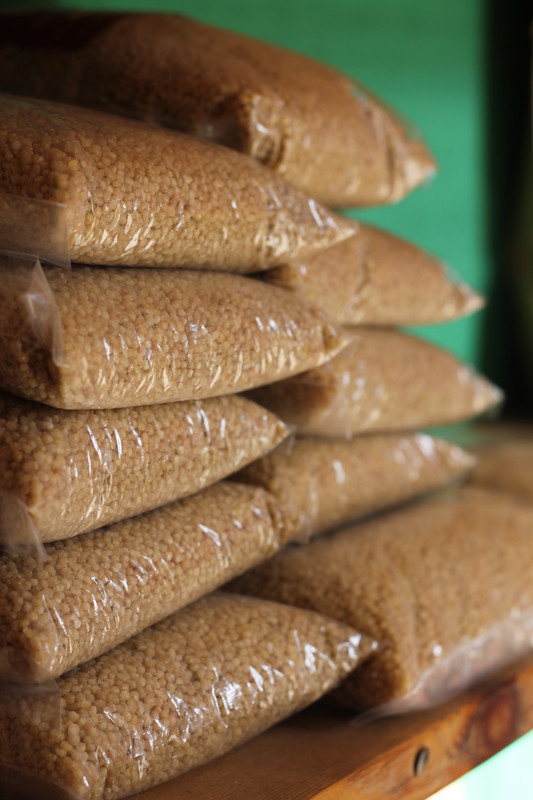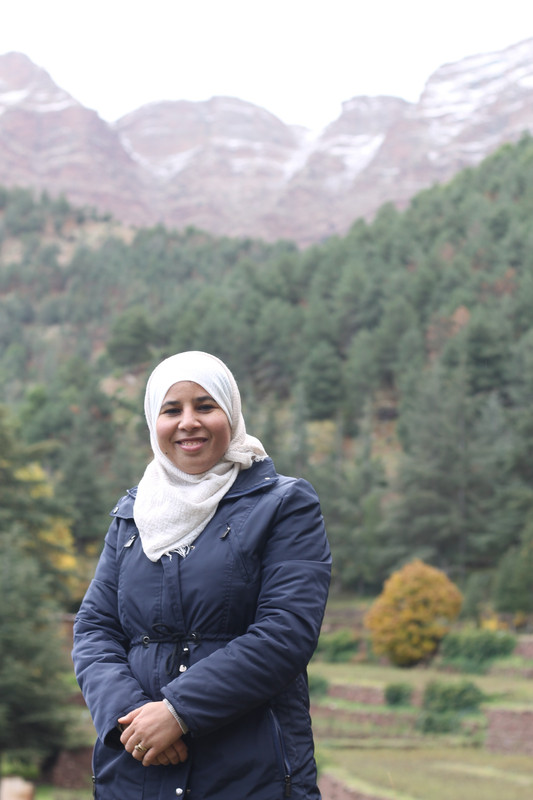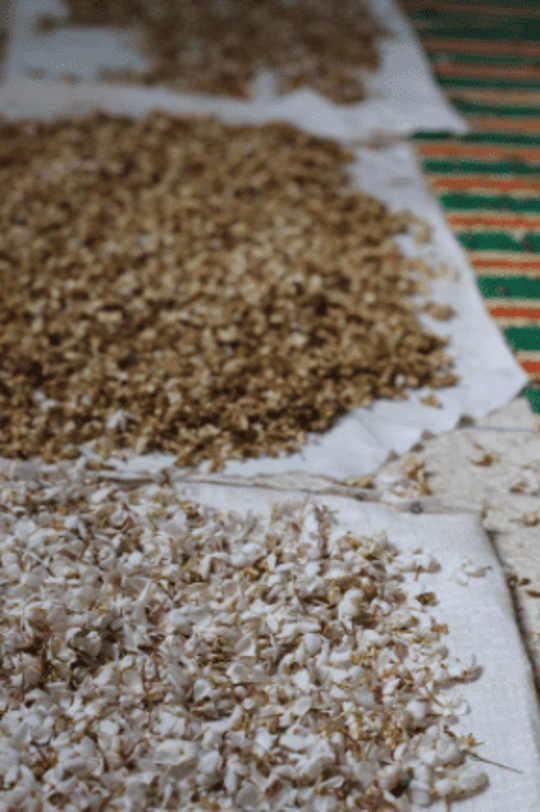Case study of the Aboghlou Womens Coopertaive, Ourika
It is a sunny Thursday afternoon as Amina El Hajjami, Projects Director at the High Atlas Foundation (HAF), and I drive out of Marrakech towards Ourika in Al Haouz Province, just one hour away. We are visiting the Aboghlou Women’s Cooperative in a small shopfront where 32 women have gathered from the surrounding districts to meet Amina. We are greeted with warmth, attention and of course ‘atay’ (mint tea) in the light-blue atelier where dried jasmine fills the air.

Freshly picked jasmine laid out to dry at the Aboghlou Womens Cooperative, Ourika.
There is a real closeness among the women and Amina, as she has been working with them since the beginning. The cooperative and community-managed nursery started in 2015 after HAF conducted participatory planning and women’s empowerment workshops with women in the province. This is a methodology that HAF trainers have successfully used with communities for a number of years now. It takes women on a rights-based process of self-discovery and identification of their own socio-economic goals, where self-interests in the cultural context are often sidelined. Within the context of Moroccan Family Law, or ‘Moudawana’, these workshops support women to become change agents and engage in the workforce.
Amina says the cooperative started because “we had the same result [in all of the workshops and participatory meetings] – that they wanted to generate income and a project. In the beginning some of them wanted to create jobs but didn’t know how.”
“We worked on what they already knew. Many had experience in making cous cous, others said they had experience in making biscuits…and they taught the other women.”
“We visited many festivals and talked to other women who started their own projects in this way…and they came back with the idea of starting a nursery”.
From here, the group became a registered cooperative in 2016 and were put in touch with a cosmetic company in France, through the PUR Project, to grow 163kg of calendula flowers – a local medicinal plant. The PUR Project helps companies to strengthen their supply chains and works with farmers and communities developing agroforestry, land restoration and sustainable agricultural practices.
Fast forward to 2018 and they now sell a range of edible artisanal products at their shopfront and at festivals including biscuits, couscous, barley, organic almonds and more depending on what is in season. In 2019 they also expect to produce quantities of verbena, geranium, jasmine, and pomegranate for export, as well as expand the types of produce that they can sell locally.
 |  |
Almonds and barley locally available at the Aboghlo Cooperative for Women, Ourika. |
| Amina El Hajjami, Projects Director with High Atlas Foundation |  | |
In their coop atelier, Amina speaks with the women in Amazigh, their familiar Berber language found mostly in the mountainous Atlas regions of Morocco and the surrounding area. They conduct a needs assessment for support required moving forward. One of the top priorities is Arabic literacy classes and some basic English numeracy, which many of them have been undertaking lately. Some women pull out their notebooks and show us how astoundingly far they have come. Others have found it hard to commit and lack self-confidence, but after 10 minutes of discussion can be persuaded to return to classes. The importance of gender sensitivity is also raised as they share stories about misunderstandings with male teachers who had attempted to run classes previously. In addition, the record-keeping duties currently fall to those who are literate, but will hopefully soon extend to many more of the 32-strong women’s cooperative members.
The High Atlas Foundation continues to provide skills building, which assists the cooperative in meeting their contractual obligations with buyers. The PUR Project conducts regular visits, on behalf of buyers, to strengthen this supply chain and open up new markets for these high-value medicinal and neutraceutical products which would, arguably, be difficult to access locally. It has taken a number of supporters for the Aboghlou Women’s cooperative to succeed, not to mention the families and communities rallying for its success. In the words of the African proverb, it truly has taken a ‘village’ of people to raise this cooperative.
In addition the benefits are also slowly trickling back into this village and beyond. After four years, their operations are self-sustaining economically and able to pay dividends to these 32 women and their families, many of whom did not have paid employment previously.The benefits are also spreading to surrounding communities where women’s groups have been approaching Aboghlou Women’s Cooperative to provide advice, guidance and assist other villages to develop in the same manner. This is a powerful model for community development – requiring the investment and effort of an entire ‘village’ of stakeholders but which sustainably gives back to a far greater number of communities in return.
For more information on this or other cooperative projects contact haf@highatlasfoundation.org
Amelia Haigh is a volunteer Proposals Writer for the High Atlas Foundation, Marrakech.
